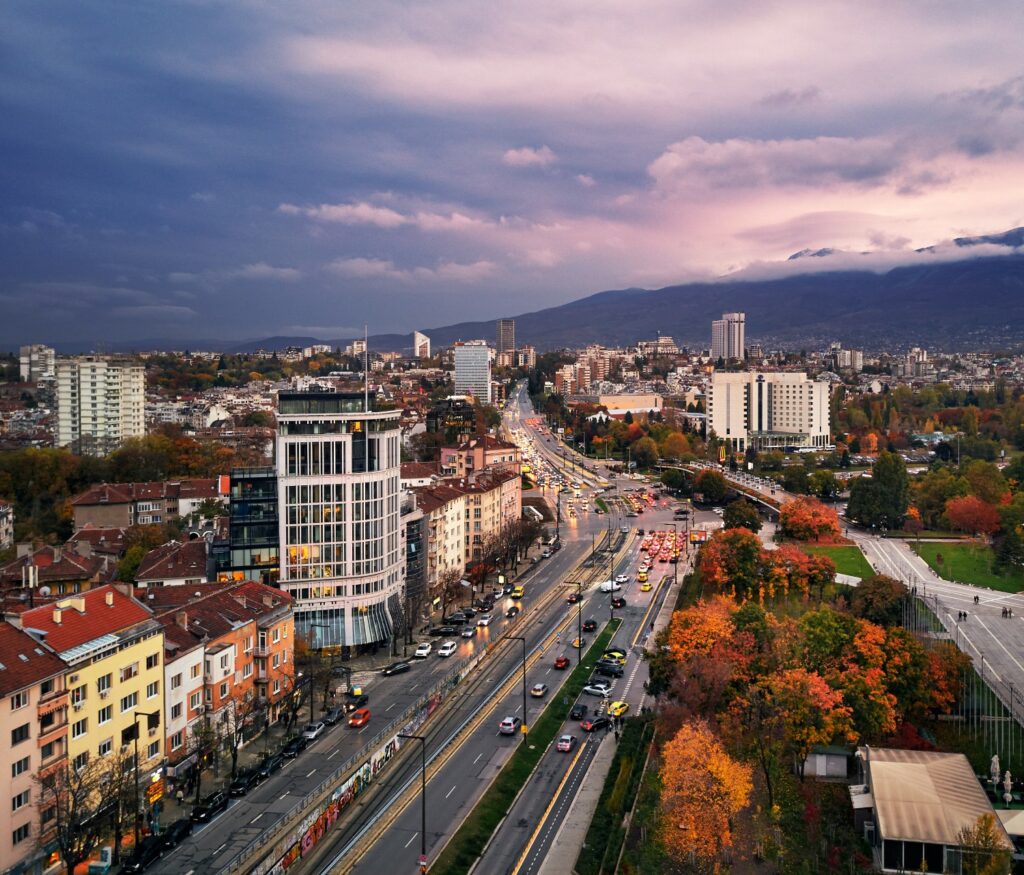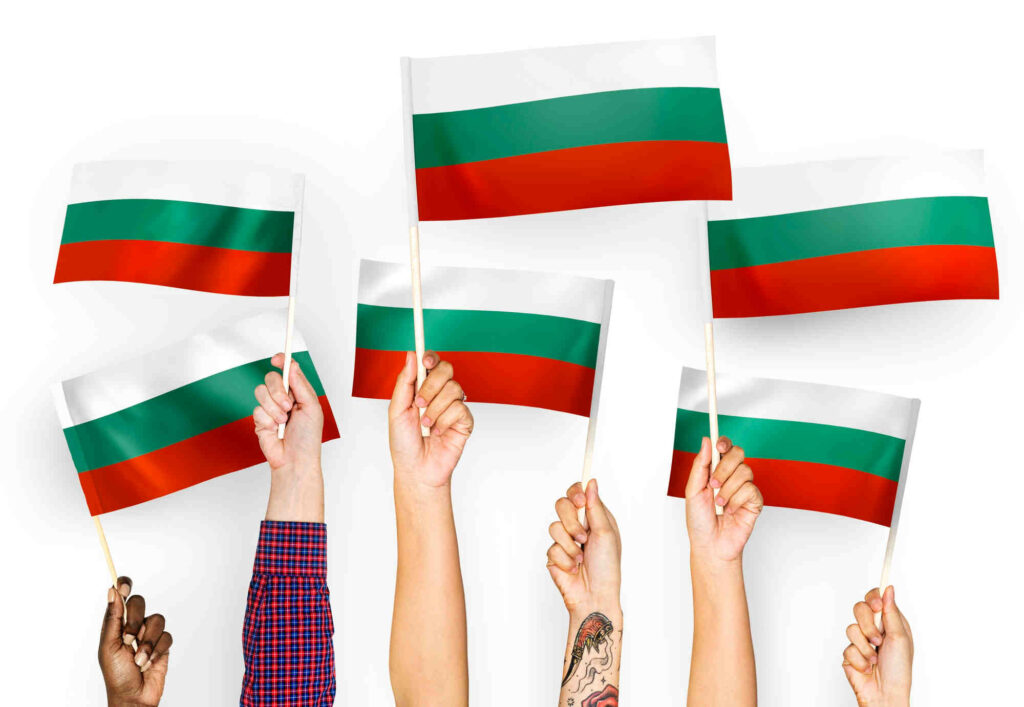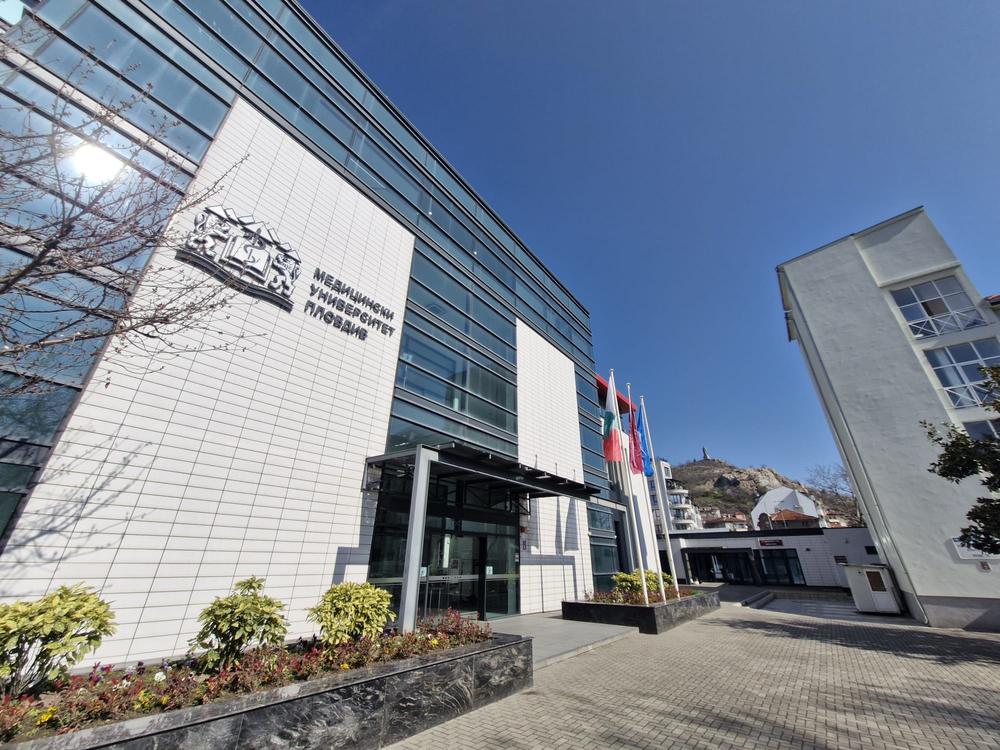The 10 Essential Reasons to Study Medicine or Dentistry in Bulgaria

If you’ve done your research thoroughly, the chances are that Bulgaria is already on your radar for being one of the best countries to study medicine in Europe. Your first reaction when hearing this might as well be: “Bulgaria, really? That tiny country most famous for its yoghurt? How come they’re rated as a top destination for studying medicine?”
Believe it or not, Bulgaria is among the top recommended countries for international medical students by medical experts and fellow students. Yes, their MD and DMD programmes turn out to be more competitive than those offered in Germany or Italy!
But what precisely makes Bulgaria such a hot destination for med students worldwide? Which are the best medical schools in Bulgaria? How can I get accepted into one of those universities? Get ready to learn the answers to all of these questions and much more!
Table of Contents
- 1 Can I study medicine in Bulgaria in English?
- 2 Is Bulgaria a good place to study medicine?
- 3 How much does it cost to study medicine in Bulgaria?
- 4 What are the entry requirements for studying medicine in Bulgaria?
- 5 Which is the best medical university in Bulgaria?
- 5.1 University Of Sofia St Kliment Ohridski
- 5.2 Sofia Medical University
- 5.3 Plovdiv Medical University
- 5.4 Trakia University
- 5.5 Burgas Medical University
- 5.6 Listen to what medical students say about studying in Bulgaria
- 5.7 1. High-quality medical education programmes
- 5.8 2. Internationally recognised diplomas
- 5.9 3. Emphasis on practical experience
- 5.10 4. State-of-the-art medical facilities and equipment
- 5.11 5. Experienced and knowledgeable faculty
- 5.12 6. Fantastic career and networking opportunities
- 5.13 7. Safe country with friendly and welcoming locals
- 5.14 8. Unique cultural experience in a country with a rich history and beautiful nature
- 5.15 9. Flexible curricula that give students the opportunity to work while studying
- 5.16 10. Affordable tuition fees and living expenses
- 6 How to guarantee getting accepted to a medical university in Bulgaria
Can I study medicine in Bulgaria in English?
Yes, you can absolutely study medicine or dentistry in Bulgaria in English! Most Bulgarian universities offer English-taught programmes in Medicine and Dentistry for international students.
You might wish to consider the Medical Universities in the top three cities in Bulgaria: Sofia, Plovdiv and Varna, or you can go for a smaller city MD Programme like the one in Pleven Medical University.
Plovdiv Medical University provides its pre-clinical, clinical and internship programmes entirely in English. Even when speaking with patients in your final year, you will have an interpreter to ease the communication process.
It could be a challenge to relocate to a country where the English language is not the official language. However, Bulgarian medical universities offer Bulgarian language courses to their students during their pre-clinical years. These courses are more than enough to help students acclimatise to their new environment and excel at their communication with patients throughout the clinical years.
Aside from the entire curriculum being taught in English, Bulgaria is home to plenty of international students. Sofia’s “Studentski Grad” (City of Students) literally hosts thousands of students from Europe and around the world. There are local communities for students from different countries that you can join as well.
If you're still concerned about language barriers, you should keep in mind that the locals, especially the younger generations, speak English pretty well. English is taught as a mandatory subject in most high schools, so you can count on the locals to understand and help you out if asked to.


Is Bulgaria a good place to study medicine?
Bulgaria is considered one of the best places to study medicine in Europe. Thousands of medical students worldwide come to Bulgaria to begin or resume their medical education every year. The medical education is of high quality, and the MD and DMDs earned from Bulgarian universities are internationally recognised.
Many Bulgarian universities have a long history and are well-established institutions. Sofia Medical University, for instance, was founded in 1917.
Bulgaria’s top medical schools have all been accredited by international organisations, such as the GMC, WHO, and AMA. This means that graduates can get a licence to practise medicine in practically any country around the globe.
Many international students would say that what they found to be the most attractive aspect of studying in Bulgaria was just how affordable the medical education was.
If you are already curious to learn more about the different Bulgarian universities that offer English-taught programmes in medicine or dentistry, fill out the form below, and a Medlink student advisor will reach out to you to offer a free consultation.
Fill in this form if you want a free consultation about your options to study in Bulgaria:
Check your email to Book a FREE call
with an expert advisor
Look at your promotions/spam folders, just in case.
How much does it cost to study medicine in Bulgaria?
Studying medicine or dentistry in Bulgaria on average will cost around £16,000 per year. Both living costs and tuition fees in Bulgaria are much lower than those in the UK and other Western countries. Overall living costs in Bulgaria are low, including rent, food and utilities.
Sofia, the capital of Bulgaria, is the most expensive city in the country, with living costs (rent, utilities, food, etc.) totalling up to €900 a month (around £760). However, Sofia is very much the exception. In most Bulgarian cities (such as Varna, the Sea Capital of the country), living expenses are nearly half that price, only about €550 a month (around £470).
For those of you who wish to study medicine in Bulgaria, note that tuition fees will also be significantly lower than those in most Western universities. Depending on where you choose to study (and whether you select medicine, dentistry, pharmacy, etc.), your yearly investment in education would range from around €7,000 (£6,100) to €9,000(or around £7,800). That’s about half the tuition fee of even the more affordable universities in countries like Germany and Italy and a good third of most medical schools in the UK.
Tuition fees for The MD & DMD Programmes in Bulgaria
| University | Annual tuition fees | Courses in English |
| Trakia University Stara Zagora | €7000 | Medicine |
| Pleven Medical University | €7500 | Medicine |
| Sofia University Saint Kliment Ohridski | €7700 | Medicine |
| Sofia Medical University | €9000 | Medicine and Dentistry |
| Varna Medical University | €8000 | Medicine and Dentistry |
| Plovdiv Medical University | €8000 | Medicine and Dentistry |
Naturally, you’d ask whether education quality is affected by lower costs. The answer is “No, it isn’t”. Medical education isn’t like, say, an off-brand iPhone, which costs less due to the lower quality of parts used. Instead, the price of the tuition fee is tightly associated with the local living standard or the financial capability of the average citizen. If medical universities in Bulgaria cost as much as they do in the UK or the US, local citizens would not be able to sign up for MDs and DMDs, and the Bulgarian universities would go out of business.
Average living expenses for International students in Bulgaria
| Rent | Utilities | Transport | Food | Leisure |
| ~€300 | ~€120 | ~€40 | ~€240 | ~€150 |
The rent fees mentioned above are associated with an apartment rental. However, there are much cheaper options available, such as student dormitories, shared rooms, and hostels, which can cost as little as €100 per month.
In some countries, it’s common for universities to offer a 4-year graduate degree, where the 2 years of pre-clinical study are skipped for students who have already studied those subjects as part of a different degree (i.e. a nursing graduate studying medicine). However, this isn’t common practice in Bulgaria at all, and unless the student is transferring, obtaining a medical degree in less than 6 years is impossible.
What are the entry requirements for studying medicine in Bulgaria?
There are 3 major factors that will influence your admission into a Medical University in Bulgaria:
- Your high school grades, especially the ones in Biology and Chemistry. You don't need A-levels or pre-med education to get into a medical university in Bulgaria, just good grades from high school.
- How well you know English - at least a B1 language proficiency level is required.
- The most important one is your performance on the entrance exam.
Each university holds a slightly different entrance examination, but they all consist of questions in Biology and Chemistry. The majority of medical school entry tests include multiple-choice questions, but you should also be prepared to face true or false, fill the gap, match the pairs, and open questions.
We recommend reading our informative blog post on how to ace your exams and get accepted into a top-tier medical university in Bulgaria. You can even test your knowledge by challenging yourself with the mini-exam we’ve added to the post.


Which is the best medical university in Bulgaria?
Let’s go over the top 4 most popular medical schools in Bulgaria together:
University Of Sofia St Kliment Ohridski
Founded in 1888, St Kliment Ohridski is the oldest university in the country. According to the QS World University Rankings, it ranks among the top 4% of universities worldwide.
The university offers a wide array of Graduate Programmes. Its medical programme is renowned and available in English for international students to apply to.
Sofia Medical University
The second medical school of Sofia was founded in 1917 and is considered among the most prestigious med schools in Bulgaria. Every year, it accepts about 400 international students into its English language Medicine Programme and another 80 into its English Dentistry Course.
The school year for international students starts in October and ends in May, with a semester break in February. Transfer students are also welcome at this university.
Plovdiv Medical University


Despite being a much smaller city than Sofia, Plovdiv’s Medical University is not to be underestimated. Currently, it boasts the biggest medical library in Bulgaria, offering over 170,000 volumes and access to tools like Medline and Microdex.
For international medical students, the medical school of Plovdiv offers programs in medicine, dentistry, and pharmacy that are taught entirely in English. The university also provides students with access to research laboratories and state-of-the-art diagnostic equipment.
Trakia University
Located in Stara Zagora, Trakia University is one of the few Bulgarian universities, which offer a Veterinary Programme in English. Despite its small size of only about 600 resident students, Trakia University is a great choice if you are interested in pursuing a career as a Veterinarian.
Stara Zagora is one of the oldest cities, not just in Bulgaria but in Europe as a whole. Its history dates back to 342 BC. Despite not being nearly as big as Sofia, the city is ideal for students who prefer a quiet town with a rich history.
Burgas Medical University
Prof Dr Assen Zlatarov University in Burgas was established in 1963, but it features one of the newest and most modern Faculties of Medicine in Bulgaria. The faculty opened its doors in 2019 and is equipped with cutting-edge teaching technology, facilities, and research equipment. The university offers a 6-year Master’s Programme in Medicine in English that completely prepares students to become successful doctors.
Burgas is a beautiful coastal city that is known for its laid-back atmosphere with friendly and welcoming locals. The city has a pedestrian-friendly layout and when you combine it with the affordable living expenses, it becomes apparent that Burgas is an ideal destination to study medicine abroad.
Listen to what medical students say about studying in Bulgaria
If you’ve decided to study medicine in Europe, Bulgaria is certainly one of the best choices you can make.
Here are the top 10 reasons why Bulgaria is considered a top-tier destination for aspiring healthcare professionals:
1. High-quality medical education programmes
Bulgaria is known for its world-class medicine and dentistry courses taught in English. Bulgarian universities' curricula are designed in accordance with the strict requirements of the European Union, so you can expect to obtain the same level of education as you would in any other EU country.
2. Internationally recognised diplomas
The medical schools in Bulgaria have all been recognised by a number of international organisations, such as the General Medical Council (GMC), the World Health Organization (WHO), the American Medical Association (AMA), and more. This means graduates can get licensed to work in Europe and beyond and that their qualifications are respected and accepted worldwide.
3. Emphasis on practical experience
Medical universities in Bulgaria know how important it is for students to be able to practise what they learn before they join the workforce. This is why you will be given plenty of opportunities to get experience either through simulations or hands-on clinical work.
4. State-of-the-art medical facilities and equipment
The med schools in Bulgaria have modern medical facilities and equipment that enable students to learn in a safe and controlled environment. You will be able to practise on high-tech mannequins and use advanced medical devices, which will help you be more prepared when you join the workforce.
5. Experienced and knowledgeable faculty
The teaching staff at Bulgarian medical universities are renowned experts who are dedicated to preparing the next generation of healthcare professionals. The experienced faculty brings years of expertise into the classroom, providing students with the knowledge and skills they need to succeed in the medical industry.
6. Fantastic career and networking opportunities
Not only will you get to meet a lot of other international students, but you will also be able to participate in international events, where you will meet professionals from all over the world.
7. Safe country with friendly and welcoming locals
Bulgaria is a safe and peaceful country with friendly locals. The welcoming and hospitable nature of Bulgarians ensures that international students feel at home and supported throughout their stay in the country. You can expect to make lifelong friends during your stay in the country.
8. Unique cultural experience in a country with a rich history and beautiful nature
By studying medicine or dentistry in Bulgaria, students have the chance to experience the unique local culture and rich history. You will get to visit ancient Roman and Bulgarian ruins at the heart of Sofia, Plovdiv, Stara Zagora, and Varna. You can also learn about the country’s varied past through museums, cultural festivals, and preserved art.
One of the things that make Bulgaria a popular tourist attraction is the delicious local cuisine like banitsa (baked pastry with cheese), moussaka (a hearty version with potatoes and minced meat), lyutenitsa (thich sauce from tomatoes and peppers), and many other delicacies.
Additionally, the country's diverse and breathtaking natural beauty provides the perfect opportunity for exploration and relaxation during your off-time. Don’t forget that two of the three highest mountains in the Balkans are located in Bulgaria, which are perfect destinations for people who love hiking.
9. Flexible curricula that give students the opportunity to work while studying
Bulgaria's universities offer a well-designed curriculum that is created with students’ best interests in mind. The flexible course schedules can be particularly beneficial for students who would like to gain additional practical experience in the medical field.
10. Affordable tuition fees and living expenses
However, perhaps the most attractive prospect of studying in Bulgaria is just how affordable life is in this country.
To recap, here are some of the reasons that make studying medicine or dentistry in Bulgaria an excellent choice:
- English-taught Medical and Dental Programmes;
- Fully accredited universities offering internationally recognised degrees;
- Among the most affordable tuition fees in the EU paired with a high standard of education;
- Universities don’t require A-levels or pre-med college education;
- Lots of valuable practical experience;
- Well-established universities with modern facilities;
- Experienced and dedicated faculty;
- Exciting and safe country with friendly locals.
How to guarantee getting accepted to a medical university in Bulgaria
Our team has helped literally hundreds of students from the UK, US, Canada, and beyond pursue their dreams and be accepted into medical universities in Bulgaria! We have close ties with all major Bulgarian medical universities and can work with them to process the necessary documents for you quickly and hassle-free. In addition, our expert student advisors can guide you through the admissions process & assist you every step of the way.
We can provide you with relevant materials to help you study for your entrance exams, schedule video interviews with the faculty, help you arrange your accommodation, connect you with fellow international students at the same university, and much more. We will quite literally handle everything, apart from sitting the entrance exam, when it is your time to shine.
Our proven track record of success, along with our highly personalised approach, ensures that every student achieves their goals and ambitions. With Medlink Students, you can be certain that you will submit an S-tier application that will secure your place at a top-ranked Bulgarian Medical University.
Use the form below to contact us today, and we will help you take your first step toward becoming a successful doctor or dentist!
Leave a Reply

About Medlink Students
Leading international recruitment company for medical students in Europe. British Council Certified Agents. 10+ years of experience and more than 10,000 students advised.








